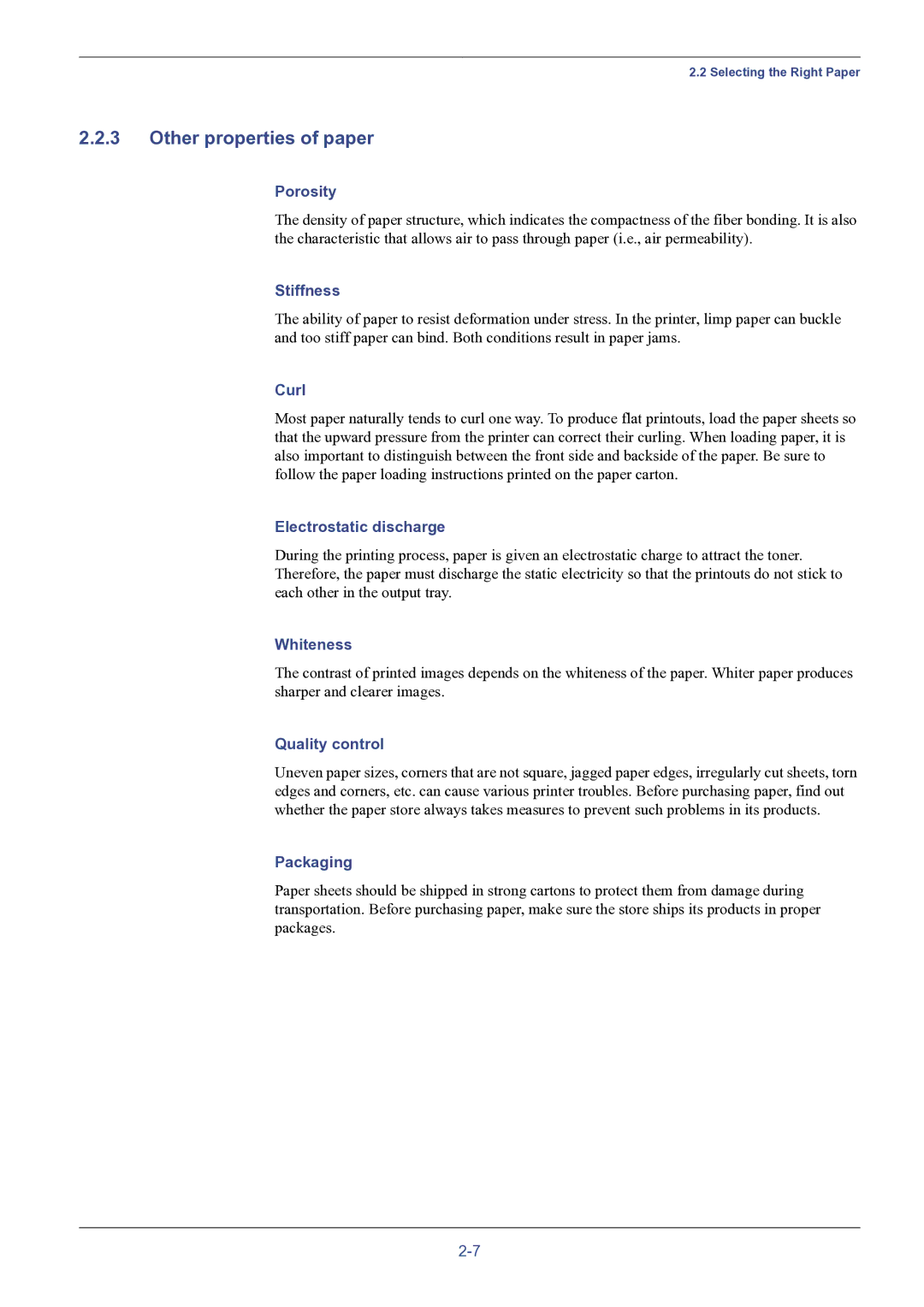
2.2 Selecting the Right Paper
2.2.3Other properties of paper
Porosity
The density of paper structure, which indicates the compactness of the fiber bonding. It is also the characteristic that allows air to pass through paper (i.e., air permeability).
Stiffness
The ability of paper to resist deformation under stress. In the printer, limp paper can buckle and too stiff paper can bind. Both conditions result in paper jams.
Curl
Most paper naturally tends to curl one way. To produce flat printouts, load the paper sheets so that the upward pressure from the printer can correct their curling. When loading paper, it is also important to distinguish between the front side and backside of the paper. Be sure to follow the paper loading instructions printed on the paper carton.
Electrostatic discharge
During the printing process, paper is given an electrostatic charge to attract the toner. Therefore, the paper must discharge the static electricity so that the printouts do not stick to each other in the output tray.
Whiteness
The contrast of printed images depends on the whiteness of the paper. Whiter paper produces sharper and clearer images.
Quality control
Uneven paper sizes, corners that are not square, jagged paper edges, irregularly cut sheets, torn edges and corners, etc. can cause various printer troubles. Before purchasing paper, find out whether the paper store always takes measures to prevent such problems in its products.
Packaging
Paper sheets should be shipped in strong cartons to protect them from damage during transportation. Before purchasing paper, make sure the store ships its products in proper packages.
